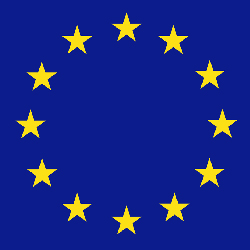Compliance
Let's Use New EU Rules As Big Market Opportunity, Not Threat - Investment House Says

One investment firm is determined to make the most of sweeping new EU rules over areas such as hedge funds, saying they could be as successful as the UCITS regime.
While the ever-expanding volume of regulation is vexatious, some wealth managers like to see the silver lining in the cloud. And that certainly applies to one firm that sees new European Union rules as a big market opportunity.
Today - 22 July - is the date when managers of alternative investments such as hedge funds and private equity must have complied with the Alternative Investment Fund Managers Directive. The directive came into force a year ago, followed by a 12-month transition period. Registration under the law is now compulsory.
The arrival of a new regime establishing regulated Alternative Investment Funds (AIFs) that can be bought and sold across Europe promises to be as successful in breaking down a fractured European market, as the UCITS regime has been over the past decade or more in the retail fund space, argues Principal Global Investors, which is headquartered in the US.
In a paper entitled AIFMD: The Dawn Of A New Investment Brand, the firm argues that AIFs could provide investors with the structure they need to hold alternative investments – such as hedge funds – without some of the curbs of UCITS.
“For the investor seeking a genuine exposure to alternatives or non-traditional asset classes, UCITS cannot always deliver. While many institutional investors use UCITS funds, they were primarily designed to serve the needs of retail investors, so their guidelines are more restrictive than those of a QIF or SIF,” the paper said. (A SIF is a “specialised investment fund” and a QIF is a “qualifying investor fund”.)
The financial crisis and the huge Bernard Madoff scandal, among other events, have made investors fearful of unregistered investment funds, encouraging some participants to confine their exposures to UCITS funds – not always ideal. (UCITS, for example, must offer daily liquidity - hardly ideal for investments where money needs to be locked up before an idea can bear fruit.)
Principal Global Investors gives the case of bank loans as proving why UCITS funds have had their limitations. Bank loans are restricted to 10 per cent of a UCITS fund; meanwhile, direct real estate cannot be held in a UCITS fund. There is, therefore, a need for a more flexible structure, but with a similar level of regulation as a UCITS fund.
“An important component of AIFMD’s investor protection will come from the standardisation of depository duties and liabilities across the EU,” it said.
One of the largest regulatory changes in years for alternative investments, the main AIFMD measures include requiring fund managers to obtain authorisation before they operate in the EU; satisfying authorities about their internal risk management arrangements; providing certain information to investors; rules on leverage and custodial standards; and rules for offshore funds and managers located in so-called third countries.
Sleepwalking
Not all investment firms appear to be as enthusiastic or as prepared as Principal Global Investors says it is. A survey by Alceda and Kepler Partners, published a few days ago, said that 32 per cent of fund managers said they were already compliant, while a further 19 per cent said they were planning to submit an application before the 22 July deadline. Unsurprisingly European managers responding to the survey were better prepared for the directive while managers in the rest of the world have some catching up to do.
The first UK hedge fund to be set up under the regime, in August last year, was the new quantitative fund manager Piquant Technologies.
A survey by investment fund software firm Multifonds, issued in June, found that respondents have become more optimistic about the impact of the new rules. Expectations for depository costs have fallen, with 68 per cent expecting these costs to be less than 2.5 basis points, a 50 per cent fall in estimates from how they viewed the situation in 2013. The firm polled firms that manage and administer assets exceeding $10 trillion and $35 trillion respectively.
There is also more confidence (82 per cent) that non-EU managers will set up European operations to take advantage of the directive, the survey found.